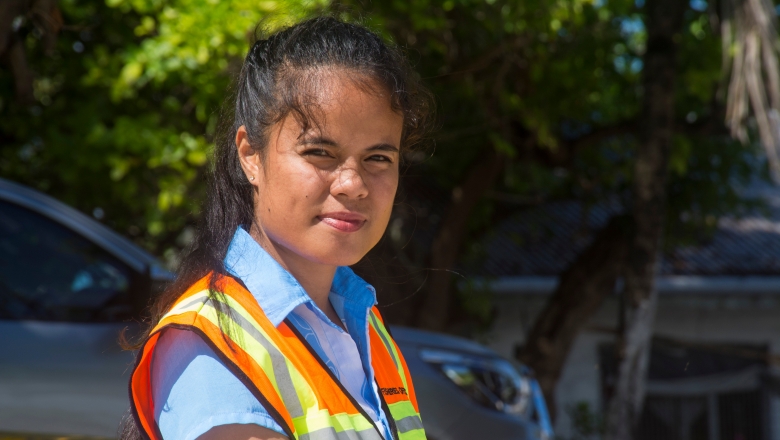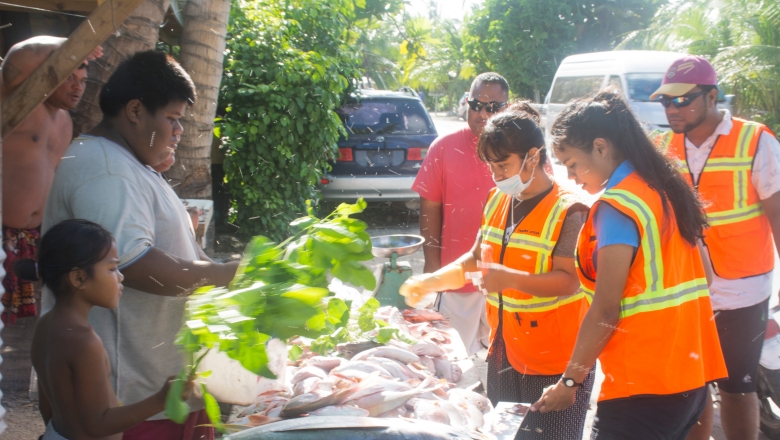“I feel like Moana,” Maaria Henry laughs. “I’m in love with the ocean.”
The 25 year-old fisheries protection officer was born and raised on Kiribati’s main island, Tarawa. Now, she’s part of a newly-established Fisheries Enforcement Unit within the country’s Ministry of Fisheries & Marine Resource Development, helping to protect domestic fish stocks by ending unsustainable fishing practices and promoting more responsible stewardship among her fellow i-Kiribati.
Through the Pacific Islands Regional Oceanscape Program (PROP), the World Bank supports Maaria’s community-level enforcement work. It’s part of a broader effort by the government of Kiribati to safeguard its territorial seas and its Exclusive Economic Zone (EEZ), the largest in the world. PROP is also helping to improve training and support for on-board fisheries observers, building monitoring control and surveillance facilities, along with a laboratory for coastal research to ensure that Kiribati’s ocean bounty remains safe, sustainable and secured for generations to come.
The program is also working at the community level to help communities diversify their ocean incomes, and branch into new ventures like sport fishing and the aquarium trade.

Maaria joined the Fisheries Enforcement Unit after she graduated from the University of the South Pacific with a Bachelor’s Degree in Marine Biology. She says that it has been an adventure ever since.
“To be honest, I was very very happy, but I was scared at the same time. Our unit is a new initiative, a newly established unit. I’m very proud to be one of the team, to be a pioneer in this unit.
“I really enjoy the job, because it’s all about sustaining and conserving our resources.
“Here in Tarawa, enforcement activities are very new. It’s a newly created job. But now we are doing a lot of training, so that we are capable of carrying out our enforcement activities confidently and professionally.”
For a young woman relatively fresh out of university, telling veteran fishermen they had to change their ways has not been easy.
“When we first started, it was very challenging work. We found a lot of problems with vendors. Most of them were very aggressive. But that was at the beginning. I think because they were new to it. They found it very difficult, because it’s affecting them in terms of their income,” explains Maaria.
“We engaged more with them, provided more awareness. Our job is important, and they must respect it. So now, when we do our inspections, they’re not against it. Sometimes when we see that they’ve breached some offences, they would say, ‘Oh sorry, we’ll try and catch bigger fish than that.”
The team has worked methodically to improve their work, and to find new ways to win the attention and respect of local vendors. “When we go back to our office, we do a lot of debriefs, and then we find solutions to it,” Maaria explains. “One is to find different approaches. When we communicate well with them, we talk with them, we explain why laws are being established, I think they understand more.”
She sees ocean conservation as an issue that’s bigger than any of them. The law doesn’t exist just for the department, she says, it’s there for the nation. “We have to comply to it to sustain our resources for our next generation—our grandkids and our grand grandkids will feel the benefits of our resources.”

